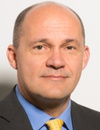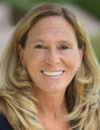Amanda EvansScientist, Los Alamos National Laboratory Dr. Evans received her Ph.D. in organic synthesis from the University of Cambridge (Professor Steven Ley). She was subsequently appointed as a Teaching Fellow and Director of Studies in Chemistry at Murray Edwards College, University of Cambridge. She has been a Fulbright Scholar and a RSC JWT Fellowship recipient, in addition to appointments as a Visiting Professorship at the University of Nice – Sophia Antipolis and as an Assistant Professor in Bio-Organic Chemistry at California State University Fullerton. Dr. Evans currently works at Los Alamos National Laboratory as a Scientist (Physical Organic Chemistry) in the Biosciences Division. She utilizes both batch and continuous processing/bioprocessing approaches for making molecules and her research interests remain diverse, spanning microfluidic syntheses, continuous flow biocatalysis, high energy compounds, DNA nanotechnology, and polymeric materials. She possesses an extensive background in the generation of chiral substrates and the use of synthetic techniques in combination with other cross-disciplinary methods to construct and characterize molecular or macromolecular compounds with useful material and/or biological properties for interdisciplinary applications. She is particularly interested in establishing more innovative, scalable and sustainable enabling methodologies for creating chiral molecules. |
Volker HesselProfessor, School of Chemical Engineering, The University of Adelaide Professor Volker Hessel studied chemistry at Mainz University (PhD in organic chemistry, 1993). In 1994 he entered the Institut für Mikrotechnik Mainz GmbH. In 2002, Prof. Hessel was appointed Vice Director R&D at IMM and in 2007 as Director R&D. In 2005 and 2011, Prof. Hessel was appointed as Part-time and Full Professor at Eindhoven University of Technology, respectively. He was Honorary Professor at TU Darmstadt, Germany and is Guest Professor at Kunming University of Science and Technology, China. Prof. Hessel was appointed as Deputy Dean (Research) and Full Professor at the School of Chemical Engineering in the ECMS Faculty at the University of Adelaide, Australia. He is (co-)author of > 450 peer-reviewed (h-index: 54). He received the AIChE Award “Excellence in Process Development Research” in 2007, the ERC Advanced Grant “Novel Process Windows” in 2010, the ERC Proof of Concept Grant in 2017, the IUPAC ThalesNano Prize in Flow Chemistry in 2016, the FET OPEN Grant in 2016, and the ERC Synergy Grant 2018. He was authority in the 35-man teamed Parliament Enquete Commission "Future of the Chemical Industry" in Nordrhine-Westfalia. |
C. Oliver KappeProfessor and Scientific Director, Center for Continuous Flow Synthesis and Processing, University of Graz C. Oliver Kappe is Professor of Chemistry at the University of Graz (Austria) and Scientific Director of the Center for Continuous Flow Synthesis and Processing (CC FLOW) at the Research Center Pharmaceutical Engineering GmbH (RCPE). He received his diploma (1989) and his doctoral (1992) degrees in organic chemistry from the University of Graz where he worked with Gert Kollenz on cycloaddition and rearrangement reactions of acylketenes. After periods of postdoctoral research work on reactive intermediates and matrix isolation spectroscopy with Curt Wentrup at the University of Queensland in Brisbane, Australia (1993-1994) and on synthetic methodology/alkaloid synthesis with Albert Padwa at Emory University in Atlanta, USA (1994-1996), he moved back to the University of Graz in 1996 to start his independent academic career. He obtained his „Habilitation“ in 1998 in organic chemistry and was appointed Associate Professor in 2000. Since 2011 he is Professor for „Technology of Organic Synthesis“ (Organische Synthesetechnologie) at the Institute of Chemistry at the University of Graz. He has spent time as visiting scientist/professor at e.g. the Scripps Research Institute (La Jolla, USA, K. Barry Sharpless, 2003), the Toyko Institute of Technology (Toyko, Japan, T. Takahashi, 2008), the Sanford-Burnham Institute for Medical Research (Orlando, USA, 2010) and the Federal University of Rio de Janeiro (Rio de Janeiro, Brazil, 2013-2015). |
Jana StoudemireDirector, In-Space Manufacturing, Axiom Space As the Director, In-Space Manufacturing for Axiom Space, Jana is responsible for identifying new business opportunities for biomedical and technology research and in space manufacturing applications on the world's first commercial space station. In addition to a strong technical background, Jana has a career history marked by successful identification of new business opportunities for private and public healthcare companies, along with product development and global commercialization of some of the most innovative healthcare technologies. She transitioned from pharma to lead life science research in microgravity as part of the team managing the International Space Station U.S. National Laboratory (ISS-NL). Jana then joined Space Tango where she successfully established the initial foundational partnerships that are helping to define an emerging biomedical market on orbit, representing a new sector of the Space economy. Jana is a member of the National Academies of Sciences, Engineering, and Medicine Committee on Biological and Physical Sciences in Space, Regenerative Medicine Manufacturing Society member, a WOMEN In Advanced Therapies (WIAT) leadership mentor, and past New Organ Alliance Oversight Committee Member along with co-chair of the Microgravity Enabling Technology Committee. |




